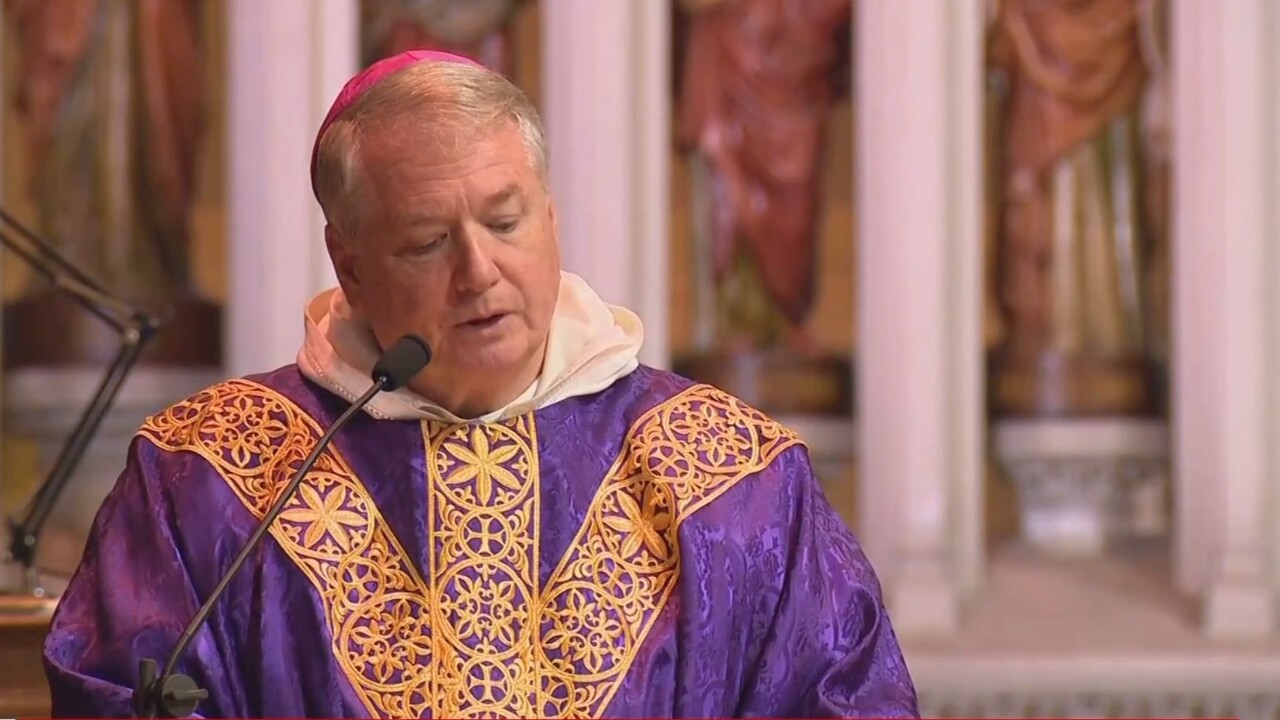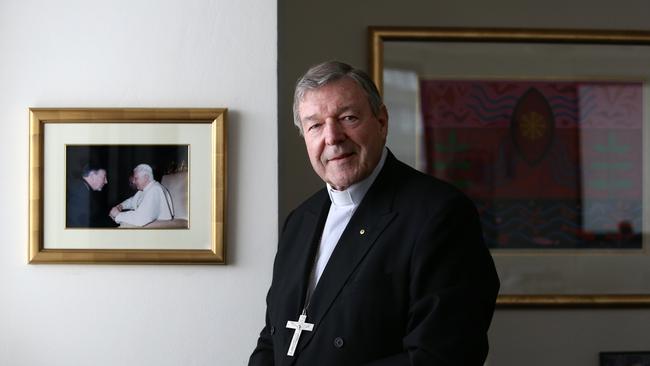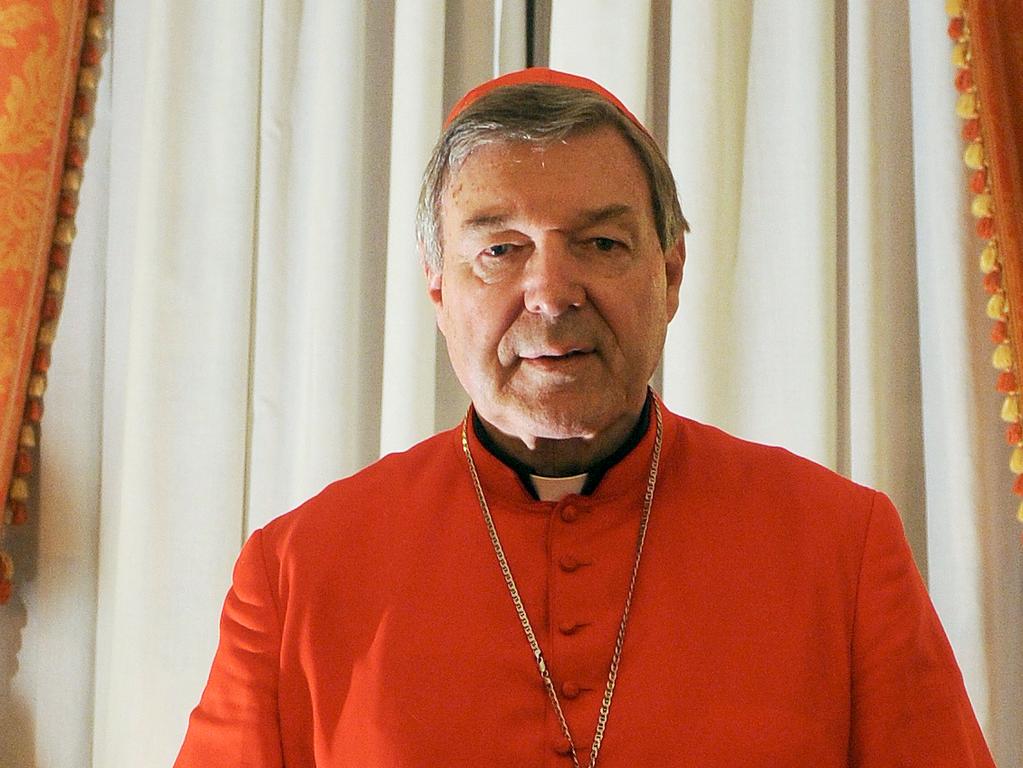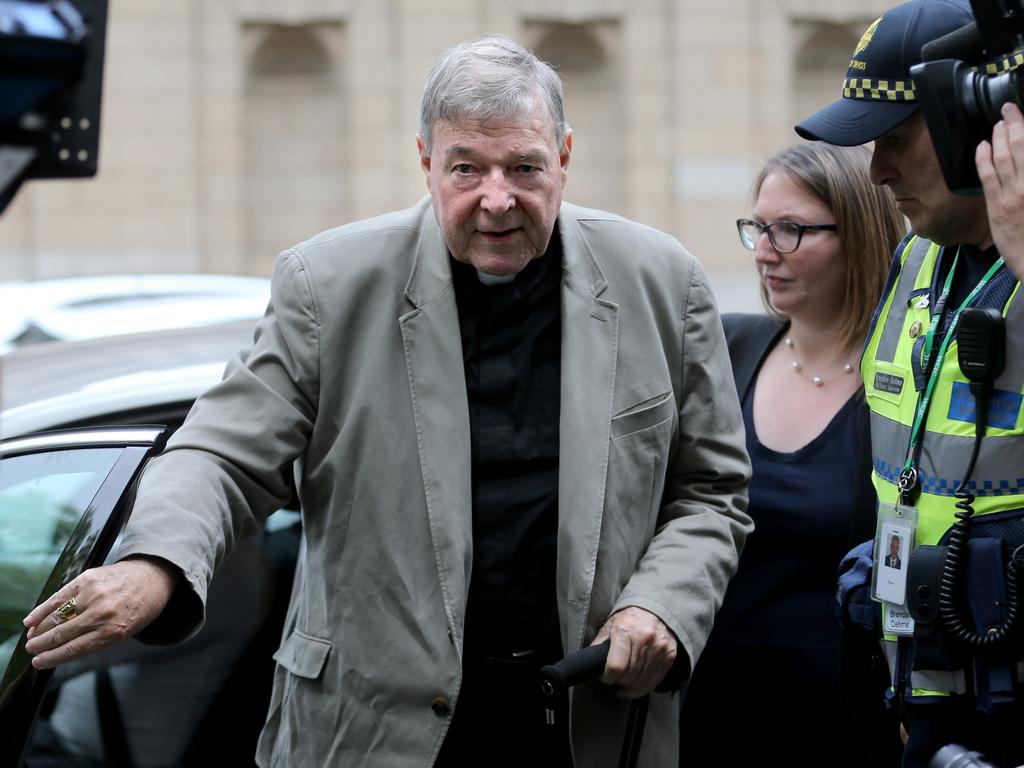George Pell: Last farewell for God’s strong man
The Catholic world is mourning the loss of one of its most influential figures and catalysts for change. George Pell’s unexpected death leaves a gaping hole but his legacy will be lasting.

George Pell’s unexpected death has plunged Catholics into mourning and compounded uncertainty about the global direction of a church still reeling from the loss of emeritus pope Benedict less than a fortnight ago.
A polarising figure inside and outside the Catholic Church, Cardinal Pell died suddenly in Rome early on Wednesday, Australian time, from a heart attack following seemingly straightforward hip replacement surgery. He was 81.
Anthony Albanese said the government was providing assistance to return Cardinal Pell’s body home to Australia.
“For many people, particularly of the Catholic faith, this will be a difficult day and I express my condolences to all those who are mourning,” the Prime Minister said.
Describing Cardinal Pell as a “saint for our times” former prime minister Tony Abbott said Australia had lost a great son and the church had lost a great leader.
“As an ecclesiastical and cultural conservative, he attracted praise and blame from all the expected quarters,” said Mr Abbott, a practising Catholic.
“In fact, he was a very pastoral priest who well understood the human stain and was more than capable of empathising with sinners while still counselling against sin.”
John Howard lauded Cardinal Pell as a strong and determined religious leader who lived up to his episcopal motto of “be not afraid”.
“He displayed consistent courage in expressing the Christian view in the public space,” said the nation’s second-longest serving prime minister. “Believers and nonbelievers were left in no doubt where George Pell stood on issues.”
Opposition Leader Peter Dutton said: “Dr Pell never lost faith in his god, his country and in justice – despite the tests and trials he endured in life.”

From humble beginnings in small-town Victoria, Cardinal Pell rose to become the most influential church leader to emerge from Australia, wielding power in the Vatican until he was forced to step aside from his official duties after being charged in 2017 with historic child sex offences. A successful but punishing court battle to clear his name – culminating in 2020 when the High Court quashed a conviction for molesting two Melbourne choirboys and freed him from jail – will cloud his legacy as an important change agent in Rome and standard-bearer of traditionalist Catholic belief.
The death of Cardinal Pell – a hardliner on church doctrine like his German friend and theologian Joseph Ratzinger, the future Pope Benedict XVI – comes at a time of flux in the Vatican amid deepening concern about the declining health of the 86-year-old pontiff, Francis.
Speculation that the power of church traditionalists is on the wane will be intensified, raising fresh questions about who might succeed the ailing Pope. While his age would have precluded him from voting in the College of Cardinals to elect the next pope, Cardinal Pell would have played a key role in rallying support for an orthodox candidate given his experience and standing in the church’s highest councils.
As inaugural head of Francis’s Secretariat of the Economy, he had been No. 3 in the pecking order with a brief to overhaul the Vatican’s troubled finances, giving him the ear of the Pope and clout to clean house.
When he returned to Rome, vindicated, Cardinal Pell did not resume his previous duties but maintained his influence as a mentor and guiding figure among the cardinals. He wrote extensively, lectured and was active in church affairs, said his biographer Tess Livingstone, The Australian’s senior editorial writer.
But he never took a step back from his muscular stands against abortion, euthanasia and the ordination of women as Catholic priests.

In a 2021 article for the US journal of religious affairs, First Things, he wrote: “Both democracy and religious freedom are at the heart of the good life. Philosophical discussion is indispensable for their survival, but democracy and religious freedom can only be defended by determined citizens who recognise the issues and have the political will to act.”
Although Cardinal Pell had a history of heart problems, he presented as upbeat and robust doing the rounds of services and informal gatherings preceding Benedict’s funeral last week.
Joking with Catholic news service EWTN’s Vatican correspondent Colm Flynn ahead of his hip surgery, Cardinal Pell professed to be “suffering in silence”.
“He was in good form, he was lively,” the journalist said on Wednesday. “This has come as a surprise for me … and everyone who knew him around the Vatican.”
The operation, his second hip replacement, was conducted at the Salvator Mundi International Hospital, a private clinic of 82 beds in the Trastevere neighbourhood of Rome.
He was chatting with the anaesthetist in the recovery room when he went into cardiac arrest; frantic attempts to revive him failed and he was pronounced dead about 9pm Tuesday local time (6am Wednesday, AEST) the Vatican news service said.
In a heartfelt tribute, Catholic Archbishop of Sydney Anthony Fisher said Cardinal Pell had been in sparkling form when they met in Rome to farewell “another great churchman” in pope Benedict.

Mr Albanese said he had been told by Archbishop Fisher there would be a funeral service in the Vatican, followed by one at St Mary’s Cathedral, Sydney.
Mr Abbott said Cardinal Pell had struck him as saintly by dealing “so equably with a monstrous allegation” after he was sentenced to six years’ jail in March 2019 on five counts of historical child offences, charges he vehemently denied. In overturning the decision 13 months later, the High Court found there was a “significant possibility that an innocent person” had been convicted. Mr Abbott said Cardinal Pell’s wrongful jailing was a “modern form of crucifixion” – a kind of “living death” reputationally.
“His prison journals should become a classic: a fine man wrestling with a cruel fate and trying to make sense of the unfairness of suffering,” the former Liberal prime minister said.
Vivian Waller, the lawyer for one of the Pell accusers, said he would be remembered as the man who was at the helm of the Catholic Church in Australia when the “full horror of sexual abuse came to the fore”. Instead of dealing with it, Cardinal Pell had acted defensively to “deny and diminish” the complaints and protect the church’s reputation and assets”.
“Survivors are hopeful that with his passing this might be a time of transformation in the church and perhaps some more compassionate responses might come forward,” she said.








To join the conversation, please log in. Don't have an account? Register
Join the conversation, you are commenting as Logout